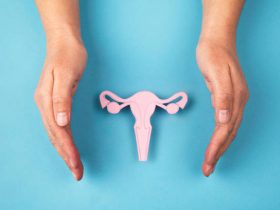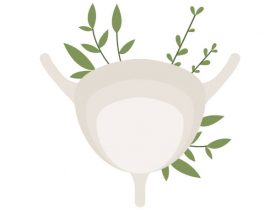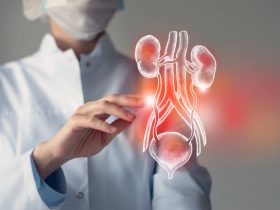It is also called painful bladder syndrome because it is characterized by multiple complaints of pelvic pain and problems in urination.
What is interstitial cystitis?
This is a chronic condition which most commonly hits women and affects their quality of life. In this condition one may experience bladder pressure, pain in bladder and pelvic region. Intensity of this pain may be mild to severe.
To date, it’s cause is poorly understood and it’s not an easily diagnosed condition. This is because we cannot detect interstitial cystitis via a single test.
What causes interstitial cystitis?
Many factors are responsible to cause interstitial cystitis but exact cause is still unknown. Some of the accepted causes are well-defined which are as follows:
- Bladder is a part of urinary trat that collects urine. When your bladder gets full with urine, it signals the brain through pelvic nerves that it is the time to urinate. As a result, we feel an urge to urinate. However, in people with interstitial cystitis these nerve signals get mix up. People feel urine recurrently with lesser volume.
- Other possible explanation about the origin of interstitial cystitis includes defect or leakage in the epithelial lining of bladder. When this protective lining of bladder gets damaged, any toxic substance of urine can easily hurt your bladder.
- Hereditary factors, infection and auto-immune reactions may also contribute to cause interstitial cystitis.
- Mast cell, a specialized inflammatory cell is able to release histamine and other chemicals, which may cause interstitial cystitis.
What are the symptoms of interstitial cystitis?
The common symptoms of interstitial cystitis (IS) vary over time and from person to person. Interstitial cystitis can be triggered in response to natural physiological changes in the body like menstruation, prolonged sitting, mental stress, vigorous exercise and sexual activities. Some of the mostly occurring symptoms include:
- Pain:
Pain and discomfort of the bladder is the first sign of interstitial cystitis which diminishes after urination. Women with interstitial cystitis experience pain between vagina and anus. Men with interstitial cystitis observe pain between scrotum and anus. This pain may be chronic and may be episodic. In addition to bladder pain, some other organs may also be affected like urethra, pelvis, lower abdomen and lower back. This is why if you suspect you have interstitial cystitis, it’s important to get GP advice online or in person.
- Frequent need to pee:
Frequency of urination increases up to 60 times a day with smaller volumes of urine. The need to pass the urine often gets worst with the passage of time and leads to urgency.
- Persistent urgency:
Sometimes people may have urgency to urinate all the day, even after excreting urine. This is the symptom that can e confused with other illnesses but is common in interstitial cystitis.
The severity of symptoms vary for every individual and symptoms may be absent in some cases.
Majority of symptoms of interstitial cystitis are identical to those observed in chronic urinary tract infection. However, usually this type of cystitis occurs without any infection, but may get exacerbated with an unexpected urinary tract infection.
What are the risk factors of interstitial cystitis?
Following are some factors that can increase the risk of interstitial cystitis:
- Your gender-
The chances of getting affected with interstitial cystitis are higher in women than men. Symptoms of interstitial cystitis in men are identical to prostatitis, so mostly it is due to the inflammation of prostate gland.
- Age-
Interstitial cystitis mostly hit the population of 30+ age individuals or older.
- Other chronic pain disorders-
Chronic pain due to other reasons like irritable bowel syndrome (IBS) and fibromyalgia may increase the risk of interstitial cystitis.
What are the complications of interstitial cystitis?
Sometimes interstitial cystitis is not so irritating and bothersome, but occasionally it may bring some complications such as:
- Tightening of bladder wall: bladder is able to store urine for longer periods due to the flexibility and expanding nature of its wall. However, with interstitial cystitis bladder wall may become stiff that lead to reduced bladder capacity to hold urine.
- Poor quality of life: persistent pain and frequent urination may affect one’s social activities, professional and marital life.
- Pretentious sexual life: due to constant pain and frequent urgency of passing urine may affect one’s sexual intimacy and personal relationships.
- Emotional disturbances: the resultant discomfort of falling asleep and persistent pain of interstitial cystitis may leave you with emotional stress and depression.
How IC is diagnosed?
There is a huge perplex in making a correct diagnosis of IC, because the symptoms of IC resemble with that of UTIs. Therefore, exact diagnosis of this disease is quite challenging for the medical professionals. At first, the diagnosis begins with the specific symptoms of typical IC, and then the examiner rules out the chances of other health problems that might be responsible of those symptoms. Then, further tests are carried out to confirm the diagnosis of IC. Patients with IC may be diagnosed with ulcers via cystoscopy, which can confirm the manifestation of IC if its other symptoms are also present.
Following is the strategy followed by a medical practitioner to diagnose IC.
Medical history of the patient:
First of all, your doctor will ask you some questions about your health including:
- Symptoms you have been through
- How long you have been with those symptoms
- How your life is being affected
- Previous health issues that you have
- Current health problems
- Which drugs are you taking?
- What is your diet and which types of liquids do you consume in a day?
Neurological and physical exam:
IC is characterized by some mental disorders like anxiety, which may occur with some other conditions too. So, your health care provider may ask you some questions about neurologic condition to exclude other conditions.
To investigate the cause of symptoms, medical practitioner will perform a physical test. For women, the physical exam of abdomen, organs present in pelvic region, and rectum will be done. For men, doctor will physically check abdomen, prostate, and rectum.
Baseline pain and excretion tests
The basic representative sign of IC is pain. So, the doctor sometimes will let you ill out a series of questionnaires to detect your baseline pain value. The basic purpose of doing so is to locate the exact site of pain, its intensity and other characteristics. Moreover, to point out the factors responsible to relieve and worsen the pain.
About voiding of urine, you may be asked about the frequency o urination, volume o urine and its odor and color to rule out other urologic conditions parallel with IC.
Urodynamic evaluation:
Urodynamics are observed to see the amount of pressure your bladder can tolerate. For this purpose, water is filled into the bladder through a small catheter. By doing this, pressure on bladder is measured to see the bladder capacity. If the patient would have IC, will show smaller capacity and exhibit pain while filling the bladder to a certain extent.
If you think you may have interstitial cystitis or want more information, get GP advice online today with our Eirdoc team.
References




